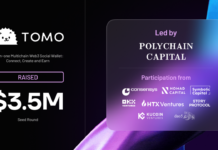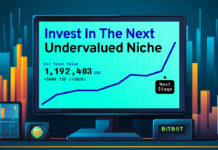Bitcoin is exploding and interest in the associated blockchain technology is at an all-time high, with Bitcoin being talked about on sitcoms as well as the news. But much of this success has been the result of a vibrant grassroots movement that has been fostered over time by dedicated and devoted communities of crypto enthusiasts around the world.
Bitcoin Magazine spoke with several blockchain Meetup organizers around the world to find out more about their groups and how they started them, grew them and kept people coming.
West Palm Beach, FL
John P. Riley is one of the organizers for the West Palm Beach Government Blockchain Association Meetup in Florida. They started just a few months ago and have over 100 members with about half signed up for the next meeting. His Meetup is a “chapter” of the Government Blockchain Association, which is not part of any government; rather, it is trying to facilitate education and use of blockchain technology in the public and private sectors.
When Riley started his group, he reached out to all the other Meetup groups in the area and met the organizers for lunch to facilitate a cooperative spirit and organization so that they didn’t set up conflicting meetings.
Riley’s focus is on making the Meetup experience comfortable and relevant for his attendees. He makes sure that there is an opportunity for people to network ahead of any presentations. And because his group is new, he has been paying expenses for things like food out of his own pocket in order to keep the Meetup free of charge.
Riley said, “We’re not selling anything here. We want to add value in a non-intrusive fashion so people are comfortable coming and don’t think it is an MLM [multi-level marketing] presentation. We have done really well so far getting local business and government workers to the meetings. My discussions with the other local Meetup leaders helped me learn about best practices for promoting on social media and that has been very helpful; we are also talking about setting up complementary topics so attendees have a reason to cycle around between the different groups.”
Seoul, South Korea
Ruben Somsen is one of the organizers for the Seoul Bitcoin Meetup in South Korea. They have nearly 2,000 members and an average of 50 attendees at their monthly meetings. He started his group in 2013 in a casual fashion after he first became obsessed with Bitcoin and wanted to talk to others about it. No other group existed at the time in Seoul.
What Somsen found useful to grow the group originally was consistent Meetups — same time and same place. It needed to be beginner-friendly and provide interesting content, while walking the fine line between welcoming newcomers and keeping it engaging for the regulars. He solved this in part by having more advanced Meetups for the regulars, but in the end, having a solid reputation has been what has mattered most in terms of attendance. He had originally allowed non-Bitcoin projects to present, but over time, said Somsen, those pitches had a tendency to turn into sales pitches, so he stopped.
“If you are truly an enthusiast and not in it for the money then stick with your principles,” Somsen advised. “The space is overrun with nonsensical altcoins, blockchains and ICOs that you’ll have to avoid. If you provide the right environment, then the real enthusiasts will find your Meetup, and they are the ones that make your community valuable. The rest of the crowd will follow naturally.”
Dubai, U.A.E.
Adam Schneider is one of the organizers for the Bitcoin Dubai Meetup in the U.A.E., with about 2,200 members and an average of 75 that come to their monthly meetings. The group has existed for four years now and grew quite organically. They have done no promotion at all other than announcing their meetings on Meetup; everyone has just found them by doing Google or Meetup searches or have been referred by people who have attended.
“I encourage people to attend by trying to provide great content at every Meetup and by building friendships so we can have a nice and strong community,” said Schneider. This is what drives him to find particular speakers and sponsors.
He keeps the Meetup free of charge, but when there are sponsors, then they have free food and drinks. He schedules his Meetups months in advance so everyone is able to schedule with plenty of notice. He takes extra care to screen any companies that want to be involved to make sure they aren’t scammers or some get-rich-quick scheme, which has become all too common in this sector.
Orange County, CA
Sean Goodwin is the organizer for the Ethereum Orange County Meetup in California, with about 1,000 members (tripled in the last three months) and averaging nearly 200 attendees per meeting, which they have two to four times a month.
“Something as simple as food will get people out,” said Goodwin. “We supply food and drinks that have been sponsored by corporations. In fact, this cooperation between corporations with a Bitcoin interest and Meetups has been very successful for us so far. We’ve had a sponsor for every event for some time now.”
Goodwin continued, “I’ve had a lot of success in reaching out to local conferences and seminars and having them provide giveaways that people are interested in, like a free ticket to their conference, and in return, we promote their conference at our Meetup. This creates value for everyone. I like to support all the other Meetups in the area by going to their meetings and coordinating so people don’t have to choose between groups.”
Goodwin likes to make sure that people have time to network before and after the speakers. “For a lot of people, this is their favorite part of the group,” he noted.
In order spread the word and be sure that the Meetup is addressing topics that people are interested in, organizers engage with their members on social media. Goodwin has also recently started putting out questionnaires to rate people’s interest in various speakers and topics.
“I’m always amazed at the number of people that are entirely new to blockchain [technology] that come to our meetings; it helped me realize how important it is to cater the topics so they aren’t over the heads of someone that is totally new and are still interesting to the general group. We started having colored name badges that indicate your area of expertise to help people connect quickly and that has been popular.”
Ghent, Belgium
Roeland Creve is one of the organizers for the Cryptocurrencies & Decentralized Innovation Meetup in Ghent, Belgium. They have over 800 members and an average of 50 attendees at their regular meetings and 25 at their beer Meetups.
According to Creve, “We started the group with a post on Bitcointalk in October 2013. It was just a loose gathering of people who were interested in Bitcoin. We have never had a ‘president.’ The management has been done, since the beginning, by a loose group of people who want to do the work (planning the Meetups, planning the talks, outreach, etc.).”
To promote the group, they organized Gent Bitcoincity and contacted various university student groups, as well as the Belgian Bitcoin Association. They plan several Meetups in advance and get it on the Meetup calendar and send out the notices, without any other social media outreach.
To get speakers, they are mostly supported by people asking to present, and they organize the calendar to support them. Their approach is to screen out pumpters, ICOs or anyone encouraging any sort of investment. Their reputation is such that they rarely get these requests anymore.
They don’t charge for their Meetups as they have worked out an arrangement with two local bars that they alternate between. One is the “beer Meetup” that is more of a networking event, and the other is a larger facility where presentations happen. They did a fundraiser once and received 1 BTC in donations; this has covered their other costs so far.
Creve also cooperates with the Meetup in Brussels, and they sometimes attend each other’s Meetups and support one another.
The common thread among these groups is that a passion for the topic is really key, and that this isn’t a competitive environment. The most successful Meetups are the ones that are reaching out and working together to help each other grow. With cooperation, there is a tremendous opportunity for synergistic relationships to develop that help everyone.
The key to success on this is being passionate and involved yourself; you want a group that is something that you would personally want to be a part of. I just love this space and all the energy and excitement. It really drives me. — Sean Goodwin, Orange County
The post Local Meetups: Growing Bitcoin and Blockchain Tech at the Grassroot Level appeared first on Bitcoin Magazine.

Bitcoinmagazine.com is author of this content, TheBitcoinNews.com is is not responsible for the content of external sites.
Our Social Networks: Facebook Instagram Pinterest Reddit Telegram Twitter Youtube











